A Danish drama courtesy of SBS. The title translates as Murk.
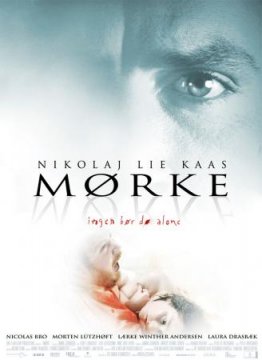
It is a study in ambiguity and the viewer’s sympathies flow back and forth between Jacob and Anker. Is Jacob, the tall dark, handsome, and assured Copenhagen journalist, an obsessive nut case, while the fat, ugly, placid farmer Anker the victim of circumstances? Or is Anker a devious serial murderer several steps ahead of Jacob, who was right about him all along? Most of the action occurs in the village of Murk (indeed) in Jutland, flat, wet, brooding skies, the smell of farms (manure)…. Be glad there is no Smell-O-Vision. [Remember that? Just wait; it will come again.]

The local plod cannot believe Jacob’s wild accusations, and he certainly is unstable by then. But Anker is on a mission and he cannot deviate….
With the resolution at the end, a number of loose ends arise: Did Hanne make the last phone call? Where is the razor blade or knife?
Maybe we need a little more of Anker to understand the mission. Is it because he, too, is outcast by his looks and so knows what his victims really want even if they never say it, may not ever say it. Why did Jacob keep waking up to answer the phone that did not ring?

In Denmark, one of the most regulated societies, could a serial widower like Anker pass unnoticed by the police, media, and the vigilantes of the blogosphere? Still less in the small villages where he passed. But what if he could….
Category: Film Review
‘Not by Chance’ (2007) Brazil
Another gem from SBS world movies, which I recorded years ago and just got around to watching. A feature film from Brazil without slums, guns, drugs, or violence, it is a rarity indeed.

Brazilian film makers seem as fixated on guns as the prepubescent boys of Hollywood.
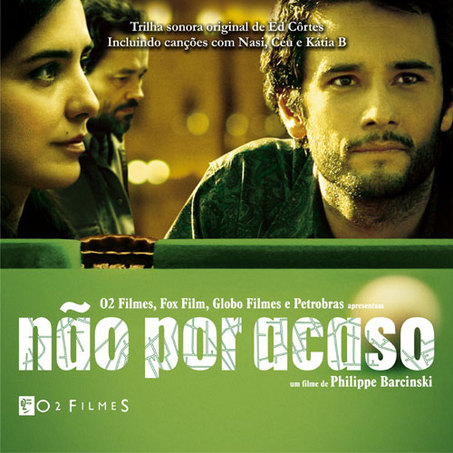
The film offers a set of character studies, and a daring one at that for the characters neither intersect nor interact, though we keep expecting that they will since that is the film convention invoked. Instead São Paulo Stories sums it up. Along the way there is a travelogue of São Paulo, much of it from the air, Google earth, and the streets, too. It moves slowly. The director is in no hurry and establishes the place before the people.
 Centro, São Paulo
Centro, São Paulo
Three sad, frustrated, and bereaved people make the best of it and get on with life. These are real people, not the products of the adolescent mind of a script writer. What a treat. By the end, Ênio reunites with his daughter. Pedro comes to terms with his grief. Lúcia quits her job and finds the cloud lifting.
There is one surprising almost staggering moment, and I suppose this is a spoiler of sorts. Be warned.
When Pedro and Lúcia pose for a picture against a great vista it seems they are reaching an understanding that they can help one another. Then later she discovers, by chance, that he has photoshopped her out of the picture and inserted his deceased girlfriend, and indeed perhaps the whole trip to the vista and the photograph had the purpose of getting that pose so that she, Lúcia, could be removed, or so she might well conclude. She is, to say the least, stunned, hurt, angry…. How would you liked to be photoshopped out of a picture by someone you cared about?
The opening titles and then first scenes establish the thesis. Oh, yes, there is a thesis in the film. It is that we and all around us flow through time and space, here illustrated with São Paulo’s road traffic.
 ” The traffic
” The traffic
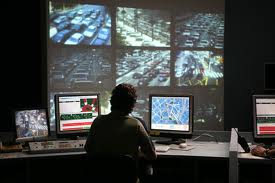 The traffic controller, Ênio, at work
The traffic controller, Ênio, at work
Fluid dynamics provides a model for both traffic flow, and human interaction. There is no intent and yet there is order. Chance creates meaning, I would say, contrary to the title, in Portuguese ‘Não Por Acaso’ which is literally ‘Not by Chance.’ Whether that phrase has an idiomatic meaning in Portuguese, I cannot say.
The effort of Pedro to plan ahead his pool games, and of Ênio to foresee and avert traffic jams, and Lúcia to predict the commodities market, these actions can influence events, they can divert the flow, but they cannot change the fundamental dynamic. The sequence when Pedro realises his plan for the pool game is wonderfully rendered. It is the payoff of earlier preparations both by Pedro and the film maker.
 Philippe Barcinski
Philippe Barcinski
This film is Philippe Barcinski’s first feature length movie and yet is assured and controlled as if by an old pro.
‘Falafel’ (2006) Lebanon
All trip but no arrival. Wait! That is not quite right. There is a charming end.
Toufic wanders around Beirut by night, leaving work at an internet café to got to a party where he hopes to meet Yasmina. He stops home to change clothes (one grungy tee-shirt for another) where he has a loving mother and a younger brother who worships him and a father who provides well for them all. All perfectly Main Street. On the way, while fuelling his moped he sees in the middle distance a kidnapping, from which he averts his eyes once he (and the viewer) realises what is happening. He crosses the city, past the neon lights, the lines of sedans at traffic lights, fast food joints, bars. Buses with workers going home. It could be a city anywhere. Note it is all set at night and so many of the images are dark, very dark.

At the party in a private apartment the misadventures begin when one of his buddies flies into a jealous rage and has to be placated. There is an argument in the parking lot over a dented fender. One of the antagonist deliberately batters his moped.
Testosterone now rising, the mild mannered Tou seeks out a weapon with which to deal with this malefactor. He travels on the damaged moped along the famous Corniche around the bay. He encounters a friendly garage owner who helps out with the moped, an officious paramilitary policeman who is heavily armed for a traffic cop, an arms dealer who pines for the good old days when the private armies bought big-time, some unpleasant goons, while his buddy, now back to normal, seeks him out to stop him doing anything stupid.
There is much back and forth and in the end Tou, though he now has a weapon, goes home and plays with his younger brother, and the two of them fall asleep. The End.
While the story in the foreground is a staple ‘what Toc did last night’ it is placed in the context of street kidnappings, trigger happy cops, and psychotic merchants of death. It was made fifteen years after the last war fought in Lebanon and about four years before the next one, a time of relative calm and normality. These twenty somethings lust after one another, dance to the latest European craze, talk of American block buster movies, the girls strut their stuff, and the lads admire it up close. They speak Arabic but act like Europeans in every way. See, normal. Yet just a few feet outside the bubble are the guns, kidnappers, paramilitary thugs, and street gangs looking for easy meat. There are few words of French with some visitors.
 Writer and director Michel Kammoun
Writer and director Michel Kammoun
It had a surprisingly good but superficial and mostly descriptive review in ‘Variety’ I found on the IMDB.
I recorded it from SBS because of its origin in Lebanon at a time of (relative) normality.
Puncture: A Dance through time and place.
A combined performance of Legs on the Wall, Vox, and the Sydney Philharmonia Choirs for the Sydney Festival 2015 at the Riverside Theatre in Parramatta. I went to a matinee to see the alto do her stuff. I class this entry as a Film Review for my convenience.
 The lobby card.
The lobby card.
What singing! What energy! What colour and movement? And some of it was in black-and-white, too. It had everything.
 The Riverside Theatre, the one in Parramatta, not Milwaukee or San Francisco.
The Riverside Theatre, the one in Parramatta, not Milwaukee or San Francisco.
It is presented as one continuous piece with breaks for applause. There were several distinct parts. The opening reminded me of ‘West Side Story,’ later there was a one-note ’Space Odyssey,’ a soprano ascendant, a Strauss waltz, lost souls in the haze à la Dante’s ‘Inferno,’ some aerial fish on harnesses, and — best for last — a superb, creative use of iPhone cameras which I thought was delightful, and apt with the app! All done in about an hour.
The black-and-white were shadows projected on the wall. Having recently seen the relevant episode of ‘Rectify’ I agreed, Plato was on to something. [You either get it or you don’t.]
Wait there is more! The audience entered through the tradesman’s door and snaked down a maze of hallways to sit on the stage with the performers. I had already instructed me to seek the high ground and I found out why later. In stagecraft-speak that is supposed to break down the barrier between audience and performer. Hmm. Reduce it yes, conceded.
This piece has been the Sydney Festival for 2015 for us. Kate has had numerous rehearsal with much get ready and wait along with seven (7) performances, sequins and all in the haze.
It was blisteringly hot day in the centre of Sydney, Parramatta being the geographical and historical centre of the greater Sydney metropolitan area.
 The red flag at the top edge centre left is the Sydney CBD with Parramatta in foreground.
The red flag at the top edge centre left is the Sydney CBD with Parramatta in foreground.
I took the train back to Newtown, glad of the air conditioning on board. Kate had to stay for the evening performance, returning much later ready for a large one.
‘Life Itself’ (2014) Recommended.
As this nerd’s tribute to another nerd, I left my desk this morning to ride Bus 352 to the Chauvel theatre in Paddington to see Roger Ebert in ‘Life Itself.’
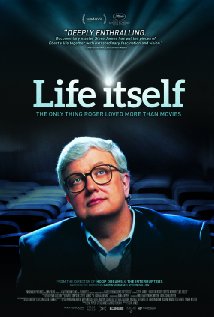
A movie is a machine for transmitting empathy by telling the stories of other people, of other times, and of other places … and there we find something of ourselves and we experience it in the silent company of hundreds of others. No, we are not alone. Call that an Ebertism. I am sure he said something like that but I could not track it down.
The movie chronicles Ebert from cradle to grave, the small town mid-western only child who made his way in the big wide world. At the University of Illinois he worked his way up to editor the ‘Illini Daily’ where he rose to the occasion in November 1963. (By the way, I loved seeing that two-storey printing presses, the rumble of which is heard streets away.)
The essential loneliness of the man is inescapable in his earlier years, here portrayed as his salad days, the life of the party with no home and no one to go home to, drinking all night and eating like a pig, and he poured himself into his typewriter.
That Ebert was awarded a Pulitzer Prize for his movie reviews is noted and mentioned a couple of times, but nothing is said about why he got it. A quotation from the citation would have been valuable. It was remarkable that a film reviewer would receive such an accolade. Still is.
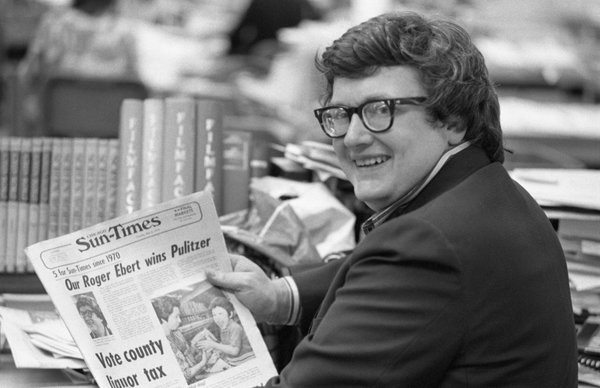
One of the major themes has to be the odd coupling with Gene Siskel. They were from different worlds, and found little in common. If they bickered on screen, they positively reviled one another off it. Though even some of that seemed forced yet it was amusing to watch the out-takes, boys being bad boys because it was expected of them.
Film literati never accepted Ebert and hated the influence he gained with audiences and indeed directors and studios. His most egregious failing was that he did not write in the inscrutable, closed, self-referential way beloved of Cultural Studies. I think of all those films made for other film directors lovingly reviewed in the ‘The Story of Film: an Odyssey’ (2011). (A documentary film reviewed elsewhere on the this blog.) Ebert cut through all of that.
Whenever I see a movie I like, I check the Ebert archive in the hope that he wrote about it, putting into words some of the things that occurred to me and, more importantly, putting into words things that did not occur to me at all.
This is the man who recognised Martin Scorsese’s genius in ‘I Call First’ (1967), who searched out and encouraged independent film makers like Errol Morris, reviewed documentaries as if they were feature film when other reviewers ignored documentaries, and made subtitled movies acceptable to an ever larger audience. Credit where credit it due.
By the way ‘I Call First’ was retitled ‘Who is that knocking at my door’ when it got a wide release thanks to Ebert’s push. His battles to review independent films with little or no theatrical release is more than enough to make the case that he expanded the realm, likewise, his thinly disguised efforts to review some obscure film three times to give it exposure. Siskel played a part in all of this, too, but is not given credit for it in these 120 minutes. No time, I guess. See my comment on length at the end.
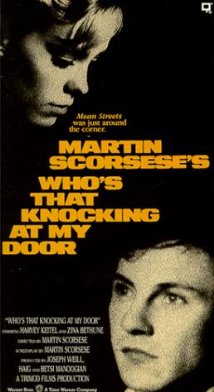
Among the many likeable moments in the documentary are these:
Martin Scorsese’s perplexed reaction, even years later, to a bad review from Ebert was delicious. Not only did Ebert start Scorsese’s career but he resurrected it once, but even so he did not like ‘The Color of Money’ and said so.
The continental tensions with the rulers of popular culture in Los Angeles and New York City who ignored those two guys living in a movie house in Chicago for years and years. (I always thought they lived there anyway.)
His abiding loyalty to the working class ‘Chicago Sun Times’ and its readership even under the baleful influence of Rupert Murdoch’s ownership was staunch. It gave him his start and he repaid that everyday.
Werner Herzog’s description, delivered in the thick overcoat of a German accent, of Ebert as a comrade wounded in action who soldiers on was charming, grim, and exact.
Richard Corliss of ‘Time’ magazine eating the words of some of his early attacks on Ebert’s approach to reviewing. Too down market for the young Corliss. An older and wiser Corliss sees a bigger picture now, or having made his career, Corliss perhaps now has no need any longer to attract attention by attacking an established figure.
The recitation of the last page of ‘The Great Gatsby,’ ‘Most of the shore places were now closed…[get it and read it for yourself].’ A dirge to be sure, but ‘Gatsby believed in the green light.’ So did Roger Ebert. Find and follow the green light….
Art mirrors life but it need not reproduce it, as Ebert said more than once. There was about 30 minutes too much of life in the film for this viewer, the grieving wife, the loving grandchildren, the lingering camera shot to wring every last drop of emotion from the take, enough already!
I enjoyed leaving my well beaten paths for a while today, but I won’t make a habit of it! I have footnotes to go and chapters to write before I play hookey again.
‘L’Âge des ténébres’ (2007)
A Walter MItty story set in contemporary Montréal. Jean-Marc lives a downward spiral in a world that is collapsing all around. To escape he daydreams, nightdreams, afternoon dreams his life away, enduring an impossible job, a loveless marriage, a daily trek to be demeaned at the office while being incapable of assisting any taxpayer who comes to him for assistance. It is a well worn franchise, this story but it is handled with vigour and imagination. If the whole does not compute, many of the parts are great fun, some of them instantly recognisable.
For instance, the committee meeting of ten to explain to Jean-Marc that ‘negro’ is a non-word in his first official disciplinary warning. The elaborate methods of the smokers to avoid the anti-smoking patrols. Yes, security guards with dogs on anti-smoking patrols. Then there is the singular Montréal touch, that Olympic stadium white elephant. Though no government in fifty (50) years has a found a use for that monument to the ego of Mayor Jean Drapeau, Denys Arcand has: government social services offices.

Why not, a billion tax dollars went into that monstrosity at the end of the metro. It is has been cited in every other Olympic bid as an example of what not to do.
Of course the functionaries have little time to deliver social services since they are constantly in meetings to hammer each other very politely with a host of conflicting and contradictory rules, to be motivated even if depressed and dispirited by Humour Quebec, to be trained in the latest trivial tweak to the meaningless rules, planning how to cut the next budget, and scheduling the next meetings. See, I said instantly recognisable.
His daydreams about revenge on his line manager and the supervisor….
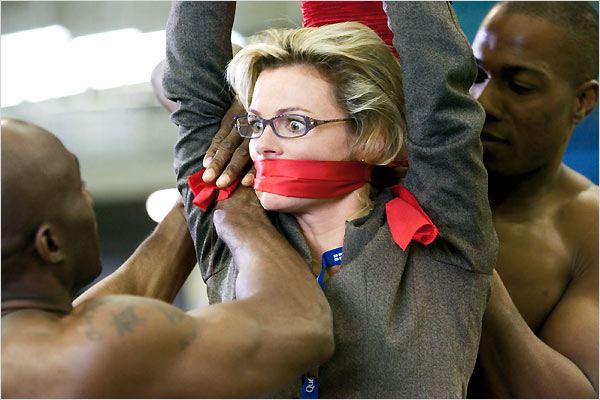 The prince’s minions at work.
The prince’s minions at work.
Well that prince of equatorial origin is famous for his cruelty. Seeing a Roman emperor dragging on a cigarette, that is worth the price of admission.
His imaginary girlfriend’s anger at being the dream girl for such a loser, ouch, that hurt! But she did not seem to mind his other fantasy women.
 The harem.
The harem.
The high-powered wife is a caricature, to be sure, but then so is everything and everyone else. The news on the radio, television, and newspapers is one downer after another. Everyone wears surgical masks in public because of an unfathomable disease that the authorities cannot control. The commuter train, which breaks down everyday, is repaired by the driver with a sledge hammer. The metro is packed with unpleasant people. Criminals with guns are released on technicalities that no one understands. Gangs roam the streets at night. The sky will be falling soon. This is not a Montréal for tourists.
Perhaps thanks to a chance meeting with another fantasist, and more importantly the death of his mother, Jean-Marc is jarred out of his mind world. He leaves home just when his wife returns. I started to type ‘estranged’ wife but their relationship is not close enough to become estranged. He banishes his dream girl with the recriminations of a long married couple. By the way the earlier shower scene with the reference to American film classifications lets us all in on the joke.
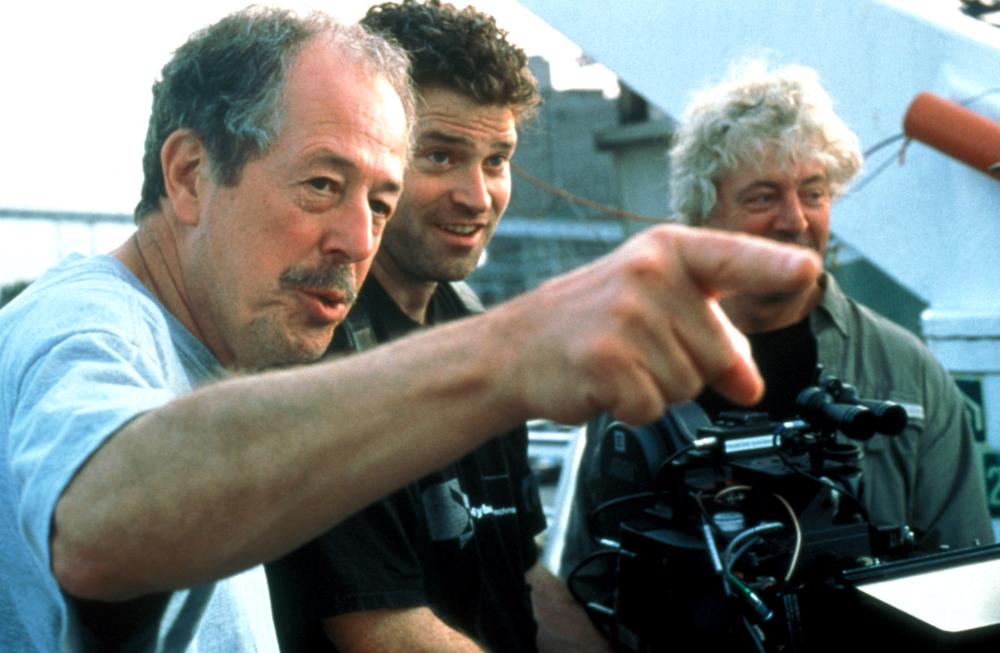 Denys Arcand gesturing. A great talent, this one with a string of thoughtful and memorable films including ‘Jesus of Montréal,’ ‘Decline of the American Empire,’ and ‘The Barbarian Invasion.’
Denys Arcand gesturing. A great talent, this one with a string of thoughtful and memorable films including ‘Jesus of Montréal,’ ‘Decline of the American Empire,’ and ‘The Barbarian Invasion.’
Recorded from SBS and watched later. The title ‘L’Âge des ténébres’ is literally the Dark Ages, but for reasons best know to themselves the SBS producers called it ‘Days of Darkness.’
‘The Imitation Game’ (2014) at the Dendy Newtown
Bletchley Park first was unknown, then a curiosity, a historical drama, and now a fantasyland.
Bletchley Park, now open to the public.
It remained secret for most of the Cold War, then a little information became available in the 1960s, then a lot more in the 1980s, and now the facts no longer constrain the story teller. ‘Enigma’ in 2001 was one take on it, a drama with a tortured performance from Dougray Scott and Kate Winslet playing against type. It was perplexing and rousing.
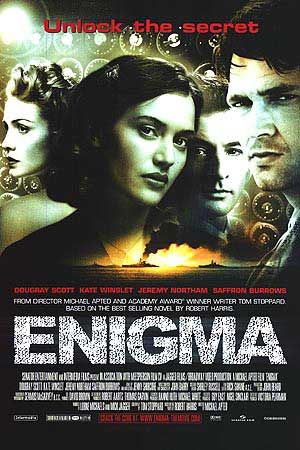
In 1968 Dirk Bogarde ran the show in ‘Sebastian’ with understated panache.
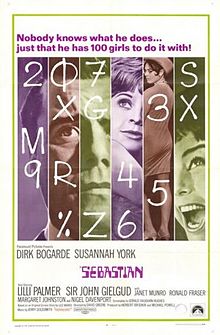
’The Bletchley Circle’ has also been on the small screen, which after a great start descended to the average, emphasising special effects over intellectual content.
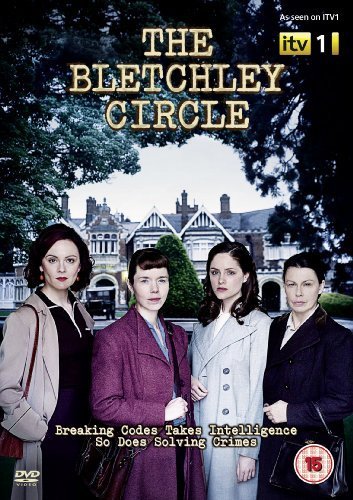
We dithered about going to ‘The Imitation Game.’ Seeing man’s inhumanity to man, well, we could see that on the television news any day. Huh? The publicity emphasised the abuse of Turing for his homosexuality; no doubt this was done to martyr him, but it put us off. For a while.
Bletchley Park, I had to see that again. Nerds winning the war! Near sighted, stoop shouldered, shuffling wallflowers with bad table manners, I could identify with them! Sorry Brad Pitt but you are not in my league.
The importance of codes and decoding has a long history to be sure. There is that Zimmerman telegram of 1917, a coded German message to Mexico that was intercepted and decoded and gave the United States a push into the war. More on the Zimmerman letter at the end. Read on.
To compare ‘Enigma’ to ‘The Imitation Game’, a few points standout. ‘Enigma’ showed Bletchley Park to be the gigantic factory it was, employing in 1944 about 12,000 people. The Bletchley Park’ of ‘The Imitation Game’ is confined to less than a dozen people with a few CGI backgrounds. In ‘The Imitation Game’ Commander Alastair Denniston is a foolish martinet, played to a ‘T’ by Charles Dance, but in fact he was the one who decided very early that code breaking in this war required mathematicians and engineers. In earlier years, decoding had been the province of linguists and translators. Not this time. Likewise, running crossword puzzle competitions to recruit personnel was his, not Turing’s, brainchild. Nor do I think the beard is right for 1942. None of the pictures I could find show him with a beard in the 1940s.
Colossus was indeed a digital computer but it was neither designed nor used by Turing but by others. Turing devised and built another device, but the film is ‘based on a true story’ so the slather is open.
Many reviewers have focused on Turing’s homosexuality, and it certainly was the man. For the one-eyed there is not enough emphasis on that, no doubt, but to this viewer it seemed partly anachronistic, i.e., the references were too explicit for the time when homosexuality was the love that did not (dare) speak its name. The very word itself in 1942 would have not always been understood. Having said that, there was plenty of emphasis on it, though Turing suffered also from autism, and code-breaker he might be, but he could not see double meanings in conversation, a fact that is very nicely presented in the scene in the pub. There was also paranoia in the mix.
There is no historical reason to believe that Turing made any decisions about the use of the material. Disclosure by using the intelligence, this was a command decision made at the very top. though Turing may have realised the implications of acting on the information but it hardly seems consistent with his complete self-absorption most of the time. Making a member of the inner circle, who apparently does nothing, a relative of a sailor on a convoy was a very midday soap opera touch. Every ship had brothers and sons on it, a good many wives, sisters, and daughters, too. ‘Enigma’ plays this straight and the result is all the more powerful when the senior naval officer implicitly orders his men to their deaths for the greater cause.
It seems very unlikely to me that a one page letter from Turing to Churchill would have uncorked a £100,000. Perhaps Leo Szilard, Churchill’s science advisor, interceded, but we will never know in ‘The Imitation Game’ where Turing is the singular Atlas on whose shoulders the world rests. On the same page the confrontation after the door is kicked in seems almost childish in its resolution where the messenger from the Home Office without word of dialogue has the authority to nod to a six month extension but mutely accepts a one month edict instead. Hello! It does not work anything like that.
Turing did write to Churchill at one point to ask for more clerical staff, and Churchill did reply immediately for ‘Action this day.’ Based on a true story they say. Hmm.
I found the chopping back and forth through time from 1928 to 1942 to 1955 confusing and distracting. The only reason the schooldays of 1928 were there in the end was to explain the name Christopher on the last contraption Turing built. It was unnecessary to the story.
Benedict Cumberbatch strives to save the day and nearly does. He does not need that backstory of 1928 to be confused, arrogant, inept, autistic, brilliant, frightened, determined, lost, secretive, brassy, paranoid, unpredictable, lonely in a crowd, and more. He did them all by turns and at times a couple at once, riveting.
Alan Turing
The female lead by comparison goes through the motions without ever quite inhabiting the part, made more difficult for being underwritten. She becomes nothing more than a plot device. Joan Clarke in fact became Deputy Head of Hut 8 which housed the first Colossus, but you’d never know it in ‘The Imitation Game.’ And she did not secure this position by patronage from Turing, to be clear. By the way she wore glasses, as did Kate Winslet in ‘Enigma.’ Hooray for Four Eyes!
The idea that the air is full of secrets is quite an idea and I wished the film makers had scrapped the CGI warfare, which was uniformly poorly done, for something creative. Would there not be a way to show those messages passing through the air like tracers and being netted at British listening stations. Now that would excite any viewer. Maybe something like this map of transponders on European air traffic.

There are several scenes of Turing running and he was a Olympic class distance runner, who failed in an Olympic try out because of an injury. One of his many personal eccentricities was to run to London for meetings, carrying a back pack with clothes. Another was to chain his perfectly ordinary tea mug to the radiator.
The imitation game is still a test for artificial intelligence pretty much as described in the police interview room where Turing breaks the Official Secrets Act he signed in 1939 to tell the plod all.
The Zimmerman telegram was decoded and acted upon in 1917 by a team that included Alastair Denniston. A feeble effort was made to hide its source, and the Germans continued to use the same code. More intelligence from broken codes was used, and the German continued to use it. Even when the pretence of hiding the sources was dropped, they continued to use it. Why? Because it was a German code and so it was the best. It was unbreakable, despite the evidence that by the middle of 1918 the Allies were reading every radio message. See Barbara Tuchman’s marvellous book ‘The Zimmerman Telegram’ (1985) for tale of his Teutonic arrogance and folly matched only by that of the United States.
‘La Boîte Noire’ (2005)
Another little gem from SBS Television, this one from France.
A la suite d’un accident de voiture, Arthur est plongé pendant quelques heures dans un coma. Durant sa phase d’éveil, dans un délire verbal, il exprime des phrases incohérentes qui trouvent leurs racines directement dans son inconscient. A son réveil, il est face à une curieuse énigme : Que faisait-il la nuit sur cette route, proche de Cherbourg?
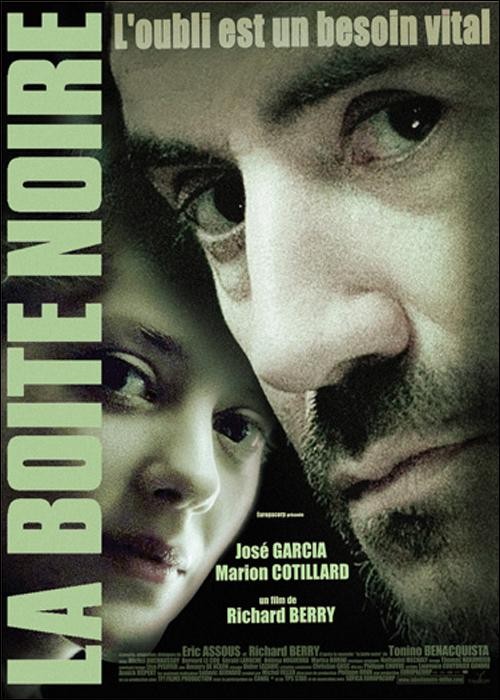
The title is perfect, once you get it, and as soon as it is said it clicks. The Black Box, c’est toi. Nice, very nice. The layers of reality and illusion are nicely done and the preoccupation with the brother begins to seem strange, and it is.
At first it seemed to be the story of an amnesiac who sets out to investigate himself, to recover his memory, as in a detective story, but it drifts away from that to science fiction or fantasy with the masked ninja. Even so, compelling viewing. It remains a study of unresolved guilt and obsession unleashed. Perhaps the larger purpose is to challenge the borders between reality and illusion but it does not succeed at that.
Juan Garcia’s many transformations from bland, sad, angry, confused, disoriented, lost, forgiving are worth the 90 minutes. He is in virtually every scene and carries the film. He is a superb actor and when we watched another SBS movie later I missed his depth, variation, and intensity compared to the callow actors in the next film who were so clearly going through the motions. Garcia believes what he is doing and makes the viewer believe it, too.
I recorded it because I saw that Richard Berry was the director and that it featured the ever versatile Juan Garcia.
Garcia I got to know when he played Adamsberg in a film based on one of Fred Vargas’s superb novels, altogether very fine that one,’Pars vite et reviens tard’ (2007) from ‘Have mercy on us all.’ That title in French is an idiom like ‘scoot and come back later’, and has nothing to do with the title of the book which is the same in both languages. Go figure. I cannot think of English equivalent to this idiom, though no doubt there is one I just cannot recall.
Richard Berry took his place in my mental pantheon with ‘C’est la vie’ (1990), another gem, directed by Diane Kurys, in which he played one of the parents, with only one scene but that was cut glass. I have kept my eye out for him ever since. He has a long list of credits including “Tais-Toi’ (2003).
The tag line on the poster above, ‘it is necessary to forget’ is perfect. It also reminds me of that old maxim that successful people have short memories. They forget their failures and mistakes and keep going. Selective memories is more accurate, but the point is not to dwell on mistakes, errors, and failures, and to keep going. When you quit, the others win.
I see that on the IMDB ‘La Boîte Noire’ scores a miserly 5.8/10. Well that confirms a conviction that most people do not recognise quality.
‘Particle Fever’ (2014)
Driven by the pack instinct of nerds, we went to the Dendy Newtown to watch ‘Particle Fever’ about physics. The star of the show was the Large Hadron Collider at CERN (Centre Européenne pour la Recherche Nucléaire) in Geneva.
The focus of the 100 minutes was the alternative explanations offered by theoretical and experimental physicists. The commitment of the individuals portrayed to pursuing ideas and testing them was inspirational. All the more so, considering the diversity of their background and formative experiences.
The theoretical issues were well enough explained to keep interest. The mix of interviews, exposition, graphics, background, and images of that Collider kept us engaged. Though much of it was in the form of extended selfies, and that got thin. A super nerd talking to an iPad camera is not entirely captivating.
The search for evidence of the Higgs Boson particle provides the drama, and there is a lot of it, including a meltdown. That Peter Higgs is there to see it was touching, affirming, and delightful.
 The theoretical matrix in which Higgs Boson is crucial
The theoretical matrix in which Higgs Boson is crucial
Along the way are messages about the importance of basic research which everyone wants and no one wants to fund. The clips of United States congressmen defaming such research is sobering, though the conditions of unfettered thinking that physicists at the Institute for Advanced Study at Princeton enjoy is the obvious counterpoint which left in silence.
Also left in silence is the engineering that built that sucker, and the endless political work that must have gone into securing, maintaining, retaining, perpetuating, and using its funding.
 Look closely at the people in the bottom left for perspective
Look closely at the people in the bottom left for perspective
This is a film about the actors on the stage, the physicists, and not about the stage machinery that made it happens. More’s the pity, because the people who made it happen also include all the politicos who sold the project, and continually re-sold it to keep those Euros flowing.
My visit to Geneva years ago took me to the League of Nations archives where I read 3×5 index cards from 1939. Now I know what I missed!
The Story of Film: An Odyssey (2011) by Mark Cousins
It has fifteen parts and is currently being aired on Studio TV. We have watched three episodes with great interest, and occasional comprehension.
What we like is the low-key presentation and comments, the worldwide scope from Zimbabwe to Afghanistan and the generosity of spirit that underlies both. All so rare on the air these days when shouting replaces thought, when the crass drives out all else, and the relentless me-focus shrinks the world, and that is on the the Australian Broadcasting Corporation (ABC)!
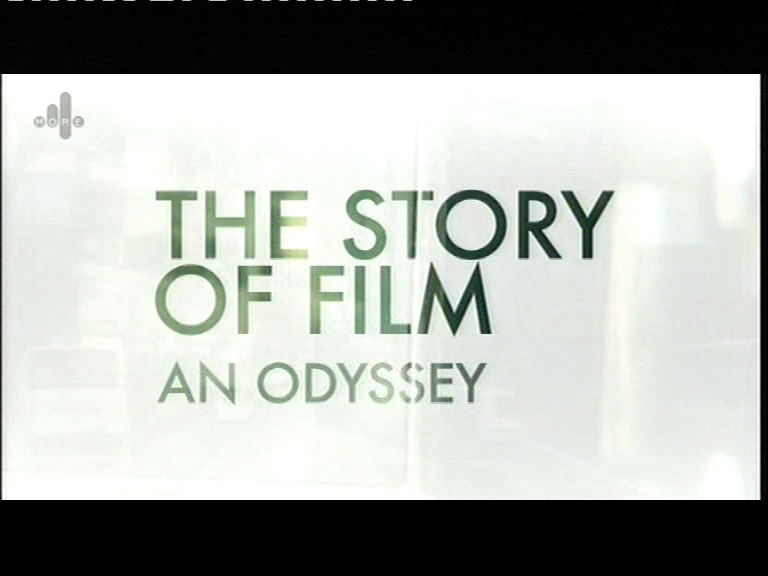
The most recent episode was an account of the last days of celluloid filmmaking before the CGIs (Computer Generated Images) conquered all.
Among those in the spotlight were Lars von Trier one whose films deadened me when I was a film festivalian, but he gave a modest and cogent explanation for his approach, as did some others, though none of it encouraged me to watch their films. They make ‘L’Année dernière à Marienbad’ (Last Year at Marienbad) (1961) seem like an action movie! It is all so intellectual, dessicated, retentive, inward, abstract, meta, self-referential, reflexive, slow … well you get the idea by now or you never will. Gone are plot and character, gone are place and time, and with them, meaning. Instead the images on the screen are to trigger some unconscious response in the viewer. Uh huh… Well, unconscious anyway.
However, the broader theme was that actors are human beings and CGIs are not. Accordingly, Mark Cousins featured directors who concentrated on film characters as human beings. They have imperfect bodies, which age, sag, and sometimes let them down. (Amen.) They also have emotions that cannot be articulated in an six-second scream but have to have portrayed. (For an example, BCGI (Before CGI) recall Steve McQueen, without a word, bouncing the ball off the wall in ‘The Great Escape’ [1963].)
Tsai Ming-liang, a Taiwanese director, had some insightful things to say, and talked mainly about his ‘Vive l’Armour‘ (1994). His comment on the Hollywood fetish of CGI concerned the deadening effect of the screen busy with multitudes of CGIs from spaceships, endless weapons, to vampires, and a deafening surround soundtrack. Sadly that is too often true.
 Tsai Ming-liang
Tsai Ming-liang
Cousins focussed on the last scene in ‘Vive l’Armour’ where a distressed young woman cries, and cries, and keeps crying in an exhausting (to watch) seven-minute take. Emotions engulf and cannot be switched on and off, that is the point. I appreciated that argument intellectually, but I confess it did not inspire me to sit through any of his work.
 Here she is.
Here she is.
As said above, I found much of the material covered in this segment, as in some of the others, to be inward looking, made only for other directors, not an audience. Though much was said about humanity in the program, it seemed there was little for the actors to do but stand in front of the camera. These directors often prefer a single handheld camera, cutting the cost of elaborate camera work, producing little more than a home movie to my eye. The director is the auteur who creates everything, when everything else has been discarded, the actor is the last prop. More than once Von Trier has done films without sets, leaving only actors. Maybe next he will dispense with them, too. That would leave the director doing a selfie into the camera, which some of these films seem to be anyway.

